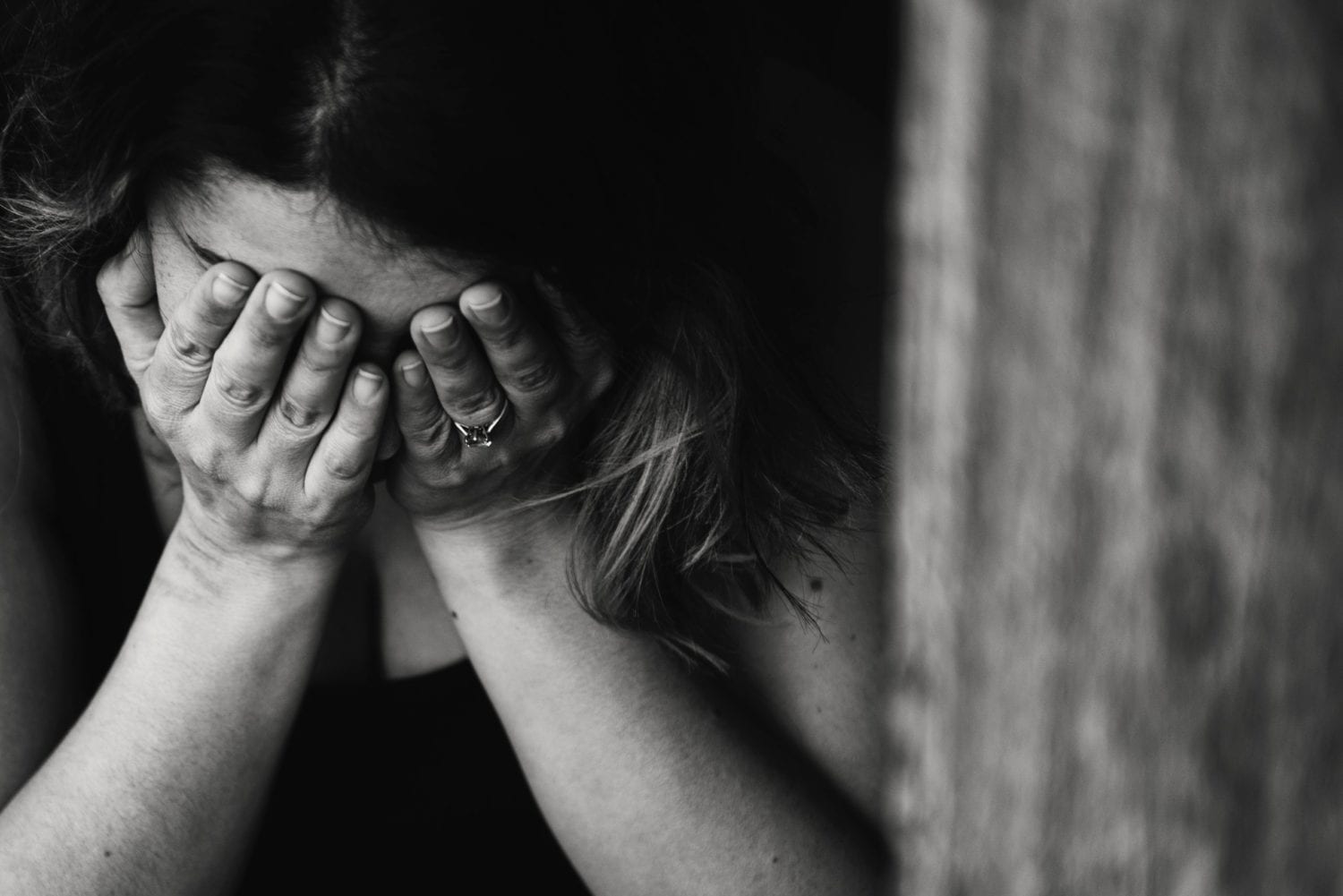What is stress?
Stress is a normal part of life and it’s our body’s response to mental or emotional pressure from a situation or life event. Generally defined by a feeling of having little control over a situation, the level of stress a situation or life event can cause in an individual varies from person to person.
There’s good and bad stress. Good stress is generally short lived, can help us to push through situations, like giving a speech or taking a test, and allow us to quickly return to a resting state without any negative long-lasting effects on our health. Bad stress is the one that becomes excessive and too much to deal with. Rather than helping us push through, it can make us feel overwhelmed or unable to cope and it can impact on both our physical and mental health.

Certain life events are more likely to lead to stress, for example the death of a loved one, getting divorced, losing a job and having financial difficulties are among the top ten causes of stress, but even some positive life changes, such as moving home, going on holiday or getting married can be sources of stress.
When we are stressed, we may experience feelings of anxiety, fear, sadness, anger or frustration which can produce actual physical symptoms, for example headaches, nausea and indigestion, making us feel even worse. Stress has been linked to gastrointestinal conditions like Irritable Bowel Syndrome (IBS), or stomach ulcers as well as conditions like cardiovascular disease.
Stress can also massively affect our behaviours, for example we may become withdrawn, indecisive, irritable and tearful. In some people, stress can lead to aggression, have an impact of their intake of alcohol, smoking habits and even affect our sleeping patterns. For some people, stressful life events can even contribute to symptoms of depression.
The Holmes and Rahe stress scale

In 1967 psychiatrists Thomas Holmes and Richard Rahe examined the medical records of over 5,000 medical patients as part of their study to understand the correlation between stressful events and illnesses.
Their results were published as the Social Readjustment Rating Scale (SRRS), also more commonly known as the Holmes and Rahe Stress Scale: a list of 43 stressful life events that can contribute to illness.
In 1970, Rahe carried out a study to test out the validity of the stress scale as a predictor of illness. 2,500 male American sailors were asked to take the test which consisted in indicating how many life events they had experienced in the previous six months. For the purpose of this research, detailed records of their health status were also kept for the following six months.
Rahe was able to find a +0.118 correlation between stress scale scores and illness. Although the actual percentage might seem small, this was enough to support the hypothesis of a correlation between life events and illness. The scale was later also assessed against different populations within the United States (including African, Mexican and White American groups) and it was also tested cross-culturally, comparing Japanese and Malaysian groups with American populations.

The study revealed that life events cannot be the only factor in contributing to illness. The scale, for a start, is based on the assumption that each stress life event affects people in exactly the same way, which of course it does not. We are all different and we all have different measures of stress. What one might find challenging, another might find frightening. Similarly, people experience life events such as buying a house, getting married or having a child in very different ways.
Nonetheless, their work proved that the accumulation of significant life events in any one year increases people’s vulnerability to stress related health problems and breakdown, and it is still very much used today by practitioners.
To measure stress according to the Holmes and Rahe Stress Scale, scoring is calculated in base at the events one experienced in the past year. The final score gives a rough estimate of how stress affects health. How stressed are you? Or shall we also say, how stressed are you likely to be based on the life events you have recently faced?
| Life event | Life change units |
| Death of a spouse | 100 |
| Divorce | 73 |
| Marital separation | 65 |
| Imprisonment | 63 |
| Death of a close family member | 63 |
| Personal injury or illness | 53 |
| Marriage | 50 |
| Dismissal from work | 47 |
| Marital reconciliation | 45 |
| Retirement | 45 |
| Change in health of family member | 44 |
| Pregnancy | 40 |
| Sexual difficulties | 39 |
| Gain a new family member | 39 |
| Business readjustment | 39 |
| Change in financial state | 38 |
| Death of a close friend | 37 |
| Change to different line of work | 36 |
| Change in frequency of arguments | 35 |
| Major mortgage | 32 |
| Foreclosure of mortgage or loan | 30 |
| Change in responsibilities at work | 29 |
| Child leaving home | 29 |
| Trouble with in-laws | 29 |
| Outstanding personal achievement | 28 |
| Spouse starts or stops work | 26 |
| Beginning or end school | 26 |
| Change in living conditions | 25 |
| Revision of personal habits | 24 |
| Trouble with boss | 23 |
| Change in working hours or conditions | 20 |
| Change in residence | 20 |
| Change in schools | 20 |
| Change in recreation | 19 |
| Change in church activities | 19 |
| Change in social activities | 18 |
| Minor mortgage or loan | 17 |
| Change in sleeping habits | 16 |
| Change in number of family reunions | 15 |
| Change in eating habits | 15 |
| Vacation | 13 |
| Major Holiday | 12 |
| Minor violation of law | 11 |
A score of 300+ in one year increases one’s susceptibility to stress-related problems.
A score of 150-299 in one year shows that risks of illness is moderate.
A score <150 in one year indicates a relatively low amount of life changes and a lower susceptibility to stress-related health problems.
A modified scale has also been developed for non-adults. Again, scoring is based on the stress life events of one individual in the past year.
| Life Event | Life Change Units |
| Death of parent | 100 |
| Unplanned pregnancy/abortion | 100 |
| Getting married | 95 |
| Divorce of parents | 90 |
| Acquiring a visible deformity | 80 |
| Fathering a child | 70 |
| Jail sentence of parent for over one year | 70 |
| Marital separation of parents | 69 |
| Death of a brother or sister | 68 |
| Change in acceptance by peers | 67 |
| Unplanned pregnancy of sister | 64 |
| Discovery of being an adopted child | 63 |
| Marriage of parent to step-parent | 63 |
| Death of a close friend | 63 |
| Having a visible congenital deformity | 62 |
| Serious illness requiring hospitalization | 58 |
| Failure of a grade in school | 56 |
| Not making an extracurricular activity | 55 |
| Hospitalization of a parent | 55 |
| Jail sentence of parent for over 30 days | 53 |
| Breaking up with boyfriend or girlfriend | 53 |
| Beginning to date | 51 |
| Suspension from school | 50 |
| Becoming involved with drugs or alcohol | 50 |
| Birth of a brother or sister | 50 |
| Increase in arguments between parents | 47 |
| Loss of job by parent | 46 |
| Outstanding personal achievement | 46 |
| Change in parent’s financial status | 45 |
| Accepted at college of choice | 43 |
| Being a senior in high school | 42 |
| Hospitalization of a sibling | 41 |
| Increased absence of parent from home | 38 |
| Brother or sister leaving home | 37 |
| Addition of third adult to family | 34 |
| Becoming a full-fledged member of a church | 31 |
| Decrease in arguments between parents | 27 |
| Decrease in arguments with parents | 26 |
| Mother or father beginning work | 26 |
A score of 300+ in one year increases one’s susceptibility to stress-related problems.
A score of 150-299 in one year shows that risks of illness is moderate.
A score <150 in one year indicates a relatively low amount of life changes and a lower susceptibility to stress-related health problems.
Identifying the causes of stress when it becomes a problem to our health

The first step in managing stress is to acknowledge when it is becoming a problem to our health. Get familiar with life events that are likely to cause you stress and do not ignore the physical signs nor the emotional and behavioural changes you are experiencing.
Secondly, identify the underlying causes and try to take control by taking small steps towards the things that you can improve. Make and plan but try to be realistic with your expectations and needs. Remember that it’s okay to feel overwhelmed and that talking to family, friends or a practitioner as well as asking for help could massively help you overcome this.
Tips on how to manage stress
- Build supportive relationships
Finding close friends or family who can offer help and offer practical advice can hugely support you in managing stress.
- Review your lifestyle
Make sure you are not taking on too much. This could be in relation to work as well as in relation to your personal life. It might even be in relation to recent life events and the level or amount of responsibilities you feel should fall on to you.
- Eat and drink healthily
Ensure you are eating healthily, and that you are retaining control over your consumption of alcohol, caffeine and smoking habits. Research shows that food has an effect on our mood and that alcohol can increase feelings of anxiety
- Exercise
Physical exercise, even just going for a walk, are renown to improve our mood through the production of endorphins. Do not underestimate the power a 15-20 minutes walk three times a week can do to your mood!
- Look after yourself!
Practice self-care by doing positive things that make you feel better. You are important and you need to look after yourself.
- Ensure you sleep well
There is a very strong correlation between sleeping problems and stress. If you are having difficulty sleeping, try reducing the amount of caffeine you consume and do not overwhelm yourself by over planning just before you go to bed. Consider reading a book you are enjoying or taking a relaxing bath instead.
- Do not beat yourself up!
Try to keep things in perspective and don’t be too hard on yourself. Also try to concentrate on the things that are good and positive in your life.
If you continue to feel overwhelmed by stress and if you feel that you are no longer able to manage things on your own, seeking professional help might be the best course of action. Make an appointment with your GP who should be able to advise about treatment and may refer you to a professional therapist. CBT (Cognitive Behavioural Therapy) has been shown to be very effective in reducing stress simply by changing the way we view and experience situations by focusing on more positive aspects and reassessing what their likely impact might be. Other psychosocial interventions that can be helpful include brief interpersonal counselling, which can give people the opportunity to discuss what causes them to feel stress and develop coping strategies and mindfulness-based approaches.



